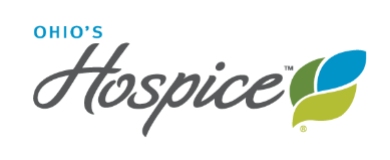About Job
SUMMARY:As an LCDC-III, you will play a vital role in providing comprehensive substance abuse assessment, counseling, and treatment services to individuals struggling with chemical dependency issues. Your expertise will contribute to the development and implementation of effective recovery plans, fostering a supportive environment for clients on their journey to sobriety and improved mental health.
Responsibilities:
-
Conduct thorough initial assessments of clients to determine the extent of chemical dependency and develop individualized treatment plans.
-
Provide evidence-based counseling and therapy sessions to individuals, groups, and families, utilizing various therapeutic approaches tailored to each client's needs.
-
Monitor and evaluate clients' progress, adjusting treatment plans as necessary to ensure effective recovery outcomes.
-
Offer education and guidance on the physical, psychological, and social effects of substance abuse, as well as strategies for relapse prevention.
-
Collaborate with a multidisciplinary team of healthcare professionals, including physicians, psychiatrists, psychologists, social workers, and nurses, to provide integrated care to clients with co-occurring disorders.
-
Maintain accurate and up-to-date client records, documenting treatment interventions, progress, and outcomes in compliance with legal and ethical standards.
-
Conduct regular reviews and consultations with clients to assess treatment effectiveness and address any challenges or concerns.
-
Provide crisis intervention services to clients in urgent situations, coordinating appropriate care and support as needed.
-
Stay informed about current trends, research, and developments in the field of chemical dependency counseling, and integrate new insights into practice.
-
Engage in continuous professional development by attending workshops, seminars, and training sessions to enhance your knowledge and skills.
-
Uphold ethical standards and confidentiality in all interactions with clients and colleagues, in accordance with relevant state and federal laws.
-
LCDCIII’s will typically be asked to sign off on notes and provide supervision.
Qualifications:
-
Possession of a valid and current LCDC-III license issued by the appropriate state licensing board.
-
Bachelor's or Master's degree in Counseling, Psychology, Social Work, or a related field from an accredited institution.
-
Proven experience working in substance abuse treatment settings, with a strong understanding of addiction dynamics, assessment techniques, and therapeutic modalities.
-
Exceptional communication and interpersonal skills, with the ability to establish rapport, build trust, and facilitate productive therapeutic relationships.
-
Knowledge of legal and ethical standards governing chemical dependency counseling and treatment.
-
Strong problem-solving abilities and the capacity to work collaboratively within a multidisciplinary team.
-
Ability to adapt to varying client needs and treatment approaches, demonstrating cultural sensitivity and competence.
-
Proficiency in maintainingaccurate and organized client records and documentation.
-
Willingness to engage in ongoing professional development and training to stay current in the field.



